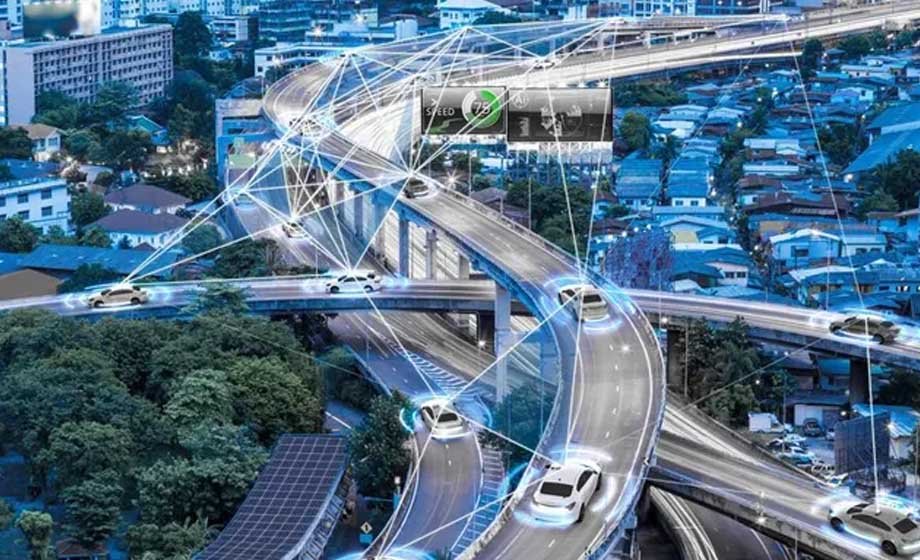The dawn of the 21st century has brought with it a revolution in road transportation, ushering in an era of unprecedented technological advancements. From self-driving cars to intelligent traffic management systems, the landscape of travel is being reshaped before our eyes. This evolution is not only about convenience; it’s also a response to the increasing challenges of urbanization, such as congestion and pollution.
The holiday season, a time notorious for traffic snarls and packed parking lots, highlights these challenges in stark relief. Smart transportation promises a future where these seasonal woes are significantly mitigated. Integrating advanced technologies aims to enhance road safety, efficiency, and sustainability. This article delves into how smart cars and smarter roads are set to transform our travel experiences.
The Rise of Smart Cars
Smart cars represent a leap forward in automotive technology, blending artificial intelligence, internet connectivity, and advanced sensors. These vehicles are designed to communicate with each other and with road infrastructure, leading to a more synchronized and safe driving experience. One of the key benefits is the reduction in human error, a major factor in road accidents.
During holidays, when the roads are busier, smart cars can navigate with greater awareness, reducing the risk of collisions. They are also equipped to handle complex parking scenarios, gracefully negotiating the right of way in crowded parking lots. This is particularly beneficial during the holiday shopping rush, ensuring a smoother flow of traffic and enhanced safety for pedestrians. Additionally, smart cars can adapt to changing traffic conditions in real time, offering optimal routes and reducing congestion. As this technology advances, the vision of a safer, more efficient road transportation system becomes increasingly tangible.
Advancements in Road Infrastructure
The transformation of road transportation is not limited to vehicles alone; it extends to the very roads we travel on. Modern roadways are being equipped with sensors and IoT (Internet of Things) devices to create an interconnected network. This network facilitates real-time data exchange, enhancing traffic flow and reducing congestion, particularly during busy holiday seasons. Smart traffic lights and dynamic signage adjust to traffic conditions, improving safety and efficiency.
Innovative road designs also include dedicated lanes for smart vehicles, ensuring smoother transit during high-traffic times like holidays. These advancements are crucial in managing the surge in parking lot traffic and guiding vehicles safely and efficiently to available spaces. Furthermore, smart roads play a pivotal role in reducing environmental impact by optimizing traffic flow and reducing idle times. The future of road infrastructure lies in its ability to adapt and respond to the needs of an increasingly mobile society, especially during peak travel times.
Impact of Smart Transportation on Parking Solutions
Smart transportation extends its benefits to one of the most challenging aspects of urban travel: parking. With the integration of advanced parking management systems, finding a spot during the hectic holiday shopping season becomes less of a headache. These systems guide drivers to available spaces, reducing time spent circling parking lots. Importantly, they manage the right of way in parking lots, using sensors and AI to prevent accidents and ensure pedestrian safety.
Smart parking solutions are particularly effective during holidays when parking demand skyrockets. They enhance convenience and significantly reduce the carbon footprint by minimizing the time cars spend idling. Furthermore, these systems can be integrated with mobile apps, providing real-time information and payment options. This seamless integration represents a step toward making holiday travel safer and more efficient.
Environmental Benefits of Smart Transportation
The environmental advantages of smart transportation systems are as significant as their technological marvels. By optimizing traffic flow, these systems significantly reduce fuel consumption and emissions, a crucial factor during heavy travel seasons like holidays. Smart cars and roads contribute to a decrease in idle times and traffic congestion, directly lowering the carbon footprint of our daily commutes. During holiday seasons, when vehicles on the road peak, these benefits are even more pronounced.
Smart parking solutions also play a vital role in environmental conservation by reducing the time spent searching for parking, thus cutting down on emissions. Additionally, the adoption of electric vehicles in the smart transportation ecosystem further amplifies these environmental benefits. This holistic approach to transportation is not just about moving people more efficiently; it’s also about creating a more sustainable future. With its increased travel and parking needs, the holiday season offers a perfect opportunity to showcase the environmental prowess of smart transportation.
The Challenges and Solutions in Implementing Smart Transportation Systems
While the future of smart transportation is promising, its implementation faces several challenges. Technology and infrastructure development costs can be a significant barrier, especially in developing regions. Additionally, there’s a need for standardization and interoperability among different systems and vehicles. Privacy and security concerns, particularly with data sharing, also present significant hurdles. However, these challenges are not insurmountable. Public-private partnerships can provide the necessary investment for infrastructure upgrades.
Developing universal standards can ensure compatibility and ease of use, which is essential for managing traffic and parking during busy periods like holidays. Addressing privacy concerns requires robust cybersecurity measures and transparent data policies. By overcoming these obstacles, smart transportation systems can realize their full potential, making holiday travel safer and more efficient.
Envisioning the Future of Travel
As we look towards the future, the promise of smart transportation holds the potential to revolutionize the way we travel. This new era of transportation is characterized by increased safety, efficiency, and environmental sustainability. The integration of smart cars and smarter roads will significantly enhance the travel experience, particularly during high-traffic periods like the holidays. Once a source of frustration and accidents, intelligent systems will seamlessly manage parking lots.
The journey ahead is exciting, as these innovations pave the way for a more connected, sustainable, and safe transportation future. While challenges remain, the benefits of smart transportation, especially during critical travel times like holidays, are too significant to ignore. The future of road transportation is not just about reaching our destinations; it’s about transforming the journey itself.
















